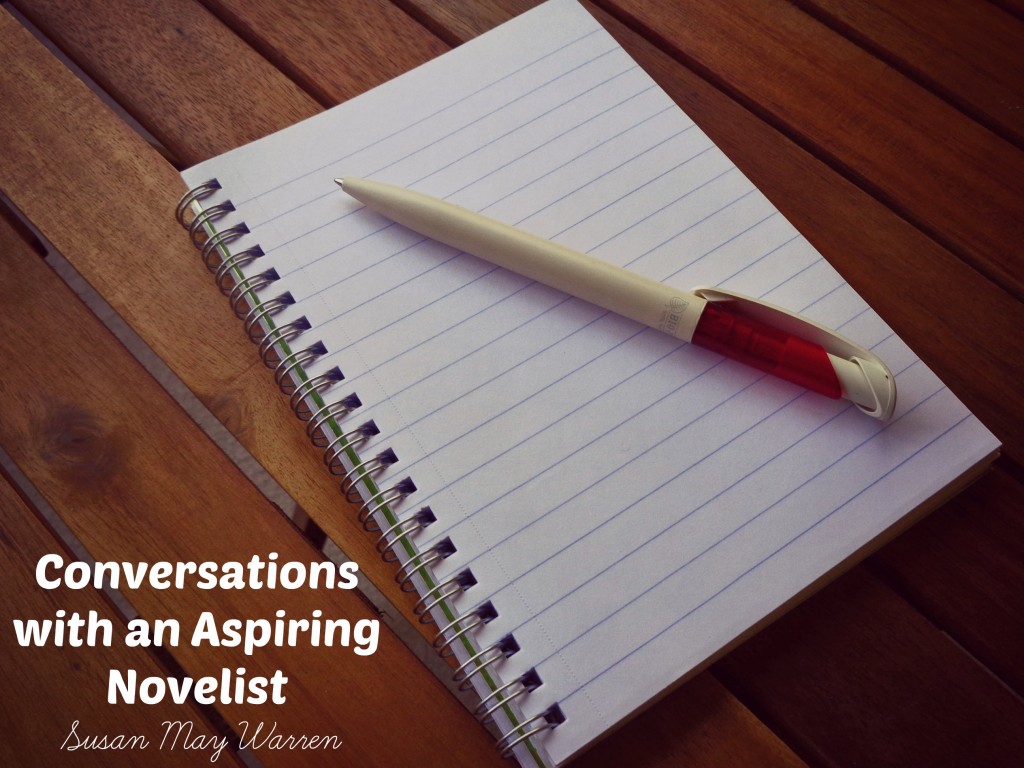I agreed to meet Sally at the local coffee shop on a Monday morning, and I told her to bring a notebook. I’d seen her at church a few times with her four children hanging off her like she might be monkey bars. She ran the children’s program and had even pulled off the church Christmas musical with twenty haloed children in under a month, so I knew she had energy as well as the chops to make it happen if she wanted it.
She wanted to write a novel.
I told her over the next year, I would be glad to help get all the way to a finished manuscript. She simply needed to be willing to hear the truth and dare to take my advice.
I sat there nursing my extra tall latté, watching the snow peel from the sky, the drifts lining the rocky shoreline outside the window remembering my own journey, started in Siberia, Russia. Armed with just a desire to write a novel, I began to pull books off my shelves and studied the masters.
Now, thirty-five novels, later, I am still amazed at the journey. I’ve learned a few things, made a number of mistakes, took a few courageous steps and now looked forward to helping Sally Anderson become a published author.
She came in five minutes late, wearing a parka, a skier’s hat and carrying a messenger bag, her eyes bright, if not a little nervous. She dumped her bag on the chair and tugged out a three-ring binder. “I brought a sample of my writing,” she said and handed it to me as she went to order her coffee.
I read through it while I waited. A few newsletters, short stories, a children’s play, a number of devotionals. All interesting, if not just a little predictable, the writing solid, if not engaging. But enough of a voice that with the right encouragement, she might encourage it to sing.
She had potential. And when she sat down with her moose mocha, enthusiasm. “Thank you for meeting with me! I just love your books. I want to write like you someday.”
I handed her back her notebook. “I want you to write like you someday,” I said with a smile. “Tell me why you want to be a writer.”
I wasn’t just being polite. I have found as I’ve taught writing across the world, that there are different types of novelists. There are those who have a message and want to change the world by writing it into a novel. These folks are zealous, but they aren’t always writers – sometimes they are simply evangelists, and writing a book seems the easiest way to get their message out. I fear for them because they sometimes become easily discouraged when they see other books written on their topic. Or if they have the book they’ve worked so hard on, with such a great message turned down by an agent. (Who clearly doesn’t know what they are doing.)
Then there are those who have endured incredible suffering or struggles and are seeking to make sense of it through a gripping novel. Maybe, if they write a best-seller, their suffering will be justified. I try to help them see the other side – the part where people might not appreciate their suffering, and in fact, the Amazon reviews could only cause more struggle (because even if there are thousands of great reviews, the few negative ones will eat away at their purpose). To these folks I say, “You didn’t suffer so you could write a book. And your novel won’t suddenly justify your struggles. You have to find that answer, that peace somewhere else.” Here’s some truth: If you aren’t happy with who you are before you are published, you won’t be after you’re published. It only gets harder, really.
So, I asked the question with a little intake of my breath, hoping..
“I think story has the power to change lives…”
Uh oh.
“And I have a number of life experiences that I think would be interesting in a novel, and I think I’m supposed to share them…”
I tried not to wince.
“But really, I just can’t help but write. I love words, and how they flow together, and I love stories and spend way too much time dreaming up plots. I know my kids are little, but I just can’t escape this urge to write. I would do it even if I never got published.”
I wanted to give her a little hug, but I didn’t want to scare her off. “Yes. Isaac Asmiov said, “I’d rather write than breathe.” This is the mark of a true novelist – that idea that you can’t turn off the stories, or the words. You must have this kind of passion to stay the course of writing a novel, because I promise, there will come the day when you want to put the book down and walk away.”
She looked dubious.
“Your passion, however, won’t let you.”
She nodded.
Sally, I could work with. “Do you have a story idea?” I asked, needing a warm up on my latte.
“Not yet. Can you help me?”
“I can’t help you find a story, but I can point you where to look. See, every story starts with a story spark – a great idea generated by something you see or hear and nurtured by something you care about. My latest book, The Shadow of your Smile, was sparked by the thought of my daughter leaving for college, and what I would do if something ever happened to her. The story spark acts as your Vision for your novel, and generates the story question that will drive your reader through your story.”
“A Story question?”
“We’ll get to that. But here’s your assignment, if you dare: Write a list of Five things you are passionate about. Five things you fear the most. Five things you’ve always wanted to do, and Five interesting things that have made you stop and think in the past couple weeks. Then apply a what if question to each of those Five things.”
“Like the fact that I lost my son in the mall for twenty minutes during Christmas?”
“Exactly that. What if…what if you hadn’t found him? What if someone took him? What if…I dunno…Santa took him?”
She smiled.
“But seriously, it’s those sorts of situation and questions that can lead to a novel spark. Now that you have the truth – do you have the courage to take the dare?”
She finished her coffee and gathered her notebook. “I’m a mom. What do you think?”
Yes, I liked Sally a lot. I couldn’t wait see what she came up with next week.
Are you new here? You might want to follow me on Facebook, Twitter, Pinterest, or Instagram.

